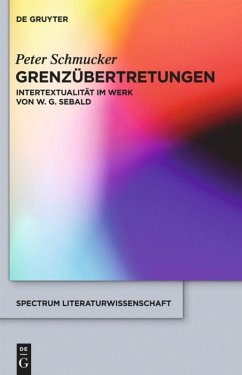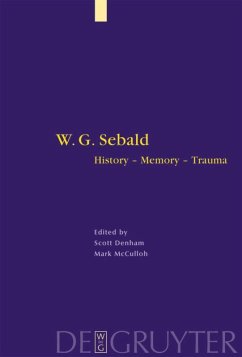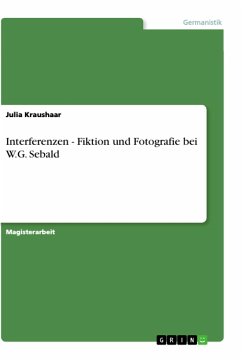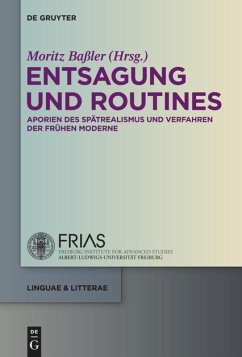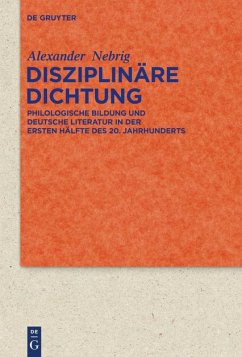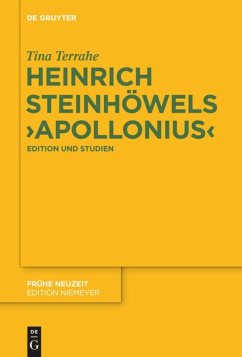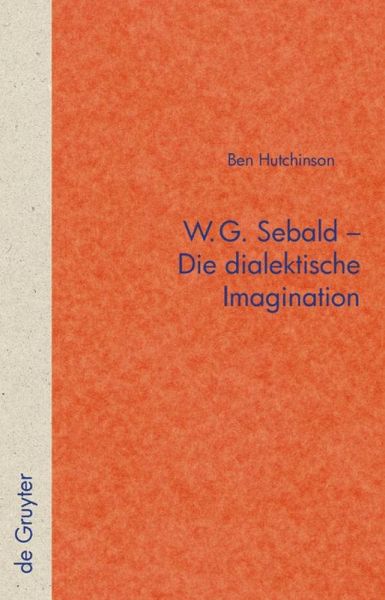
W.G. Sebald - Die dialektische Imagination

PAYBACK Punkte
0 °P sammeln!
This book uses the annotations in W.G. Sebaldâ??s private library (held in the Deutsches Literaturarchiv, Marbach) to construct an interpretation of his prose style as fundamentally dialectical. Alongside his readings of writers such as Benjamin, Bernhard, Bassani, and Levi-Strauss, it uses in particular Adornoâ??s and Horkheimerâ??s â??Dialektik der Aufklärungâ?? to help develop a close reading of Sebaldâ??s syntax and narrative structures. The key concern of Sebaldâ??s prose emerges not as the Holocaust, but rather the dialectical processes of â??progressâ?? and â??regressionâ?? inherent in history.
Die vorliegende Studie widmet sich einer Analyse des Sebald'schen Prosastils unter Rekonstruktion des literarischen Produktionsprozesses. Erstmals in einer Monografie wird seine Handbibliothek im Deutschen Literaturarchiv Marbach erschlossen, um die stilistischen Einflüsse von Dichtern und Denkern wie Adorno, Benjamin, Bernhard, Bassani und Lévi-Strauss in seinem Werk herauszustellen. Mit Blick auf seine Rezeption der Fortschrittskritik der Frankfurter Schule werden als wesentliche Schlüssel zum Werk W.G. Sebalds nicht Holocaust und Zweiter Weltkrieg, sondern die dialektischen Prozesse von Geschichte nachgewiesen.





